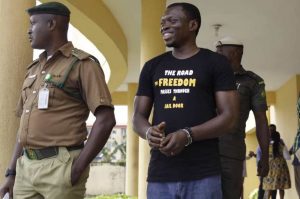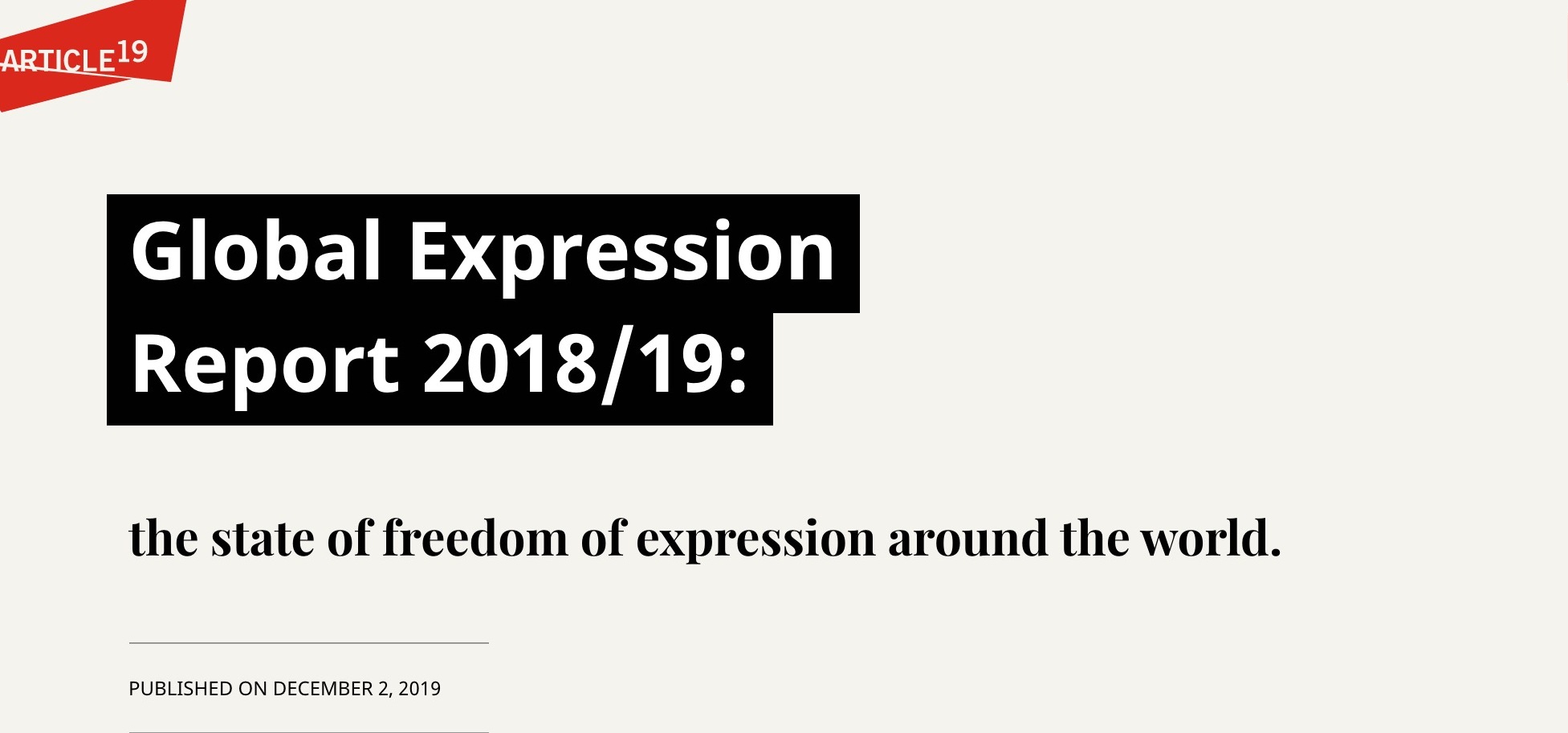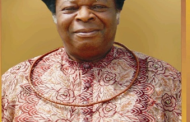Freedom of expression has suffered an all time low across the world, says Article 19, the UK based global press rights monitor. Its December 2nd, 2019 report to that effect is blaming it on ‘digital authoritarianism’ arising from technology enabled surveillance of the media space by governments and their spying agencies in the name of vigilance/national security.
A piece (Freedom of expression is at a ten-year low, study says) on the report by Mathew Ingram in the Columbian Journalism Review, (CJR) stated that the situation took a turn for the worse since 2013. It puts the statistics of journalists under stress at 99 killed in 2018 in contrast to 78 in 2017 and a total of 250 in prisons at the end of 2018, more than 10 percent of them on charges of “false news”.
Based on alerts received by the Council of Europe, the report arrived at how harassment and violence directed towards journalists has almost doubled every year since 2015 when the Council’s alert program was launched. The countries where the alerts came from most are Turkey, Russia, Ukraine, Azerbaijan, and France, nearly all from the state sector

Agba Jalingo as a Nigerian case study?
Article 19’s five metrics of freedom are the Civic space and how conducive it is; 2) Digital which measures how free that space is in terms of freedom of online discussion, internet shut-downs by governments, censorship and content moderation; 3) Media, which measures factor of how censorship at the level of self and government’; 4) Protection which measures safety of journalists and its defenders and, finally, 5) Transparency, of law, predictability of its use and the presence of effective oversight.
There is one paragraph most readers across the world would find interesting because it applies globally in addition to how it, for once, shifts recent emphasis on populism as a drawback. It goes as follows, ”One of the biggest factors in the decline of free expression and the free press, Article 19 says, is the rise of “strongman” politics in a number of countries, characterized by old leaders clinging to power and new leaders coming into power by ignoring or altering a country’s constitution, relying on networks of cronyism and corruption, and promoting a “muscular form of majoritarian populism, which excludes, polarises, and silences, railing against the speed-bumps of democratic institutions and limits on the exercise of power.” Sounds like a number of countries we could name”.
The report will resonate in Nigeria where Agba Jalingo is the most notable illustration of some of the metrics. The treason charge upon which he has been in prison remain unclear to many citizens. His case is additional to a social media bill being cooked at the National Assembly. Its proponents say it is aimed at sanitizing the space. Its critics say it is a prelude to authoritarian thrust.




























